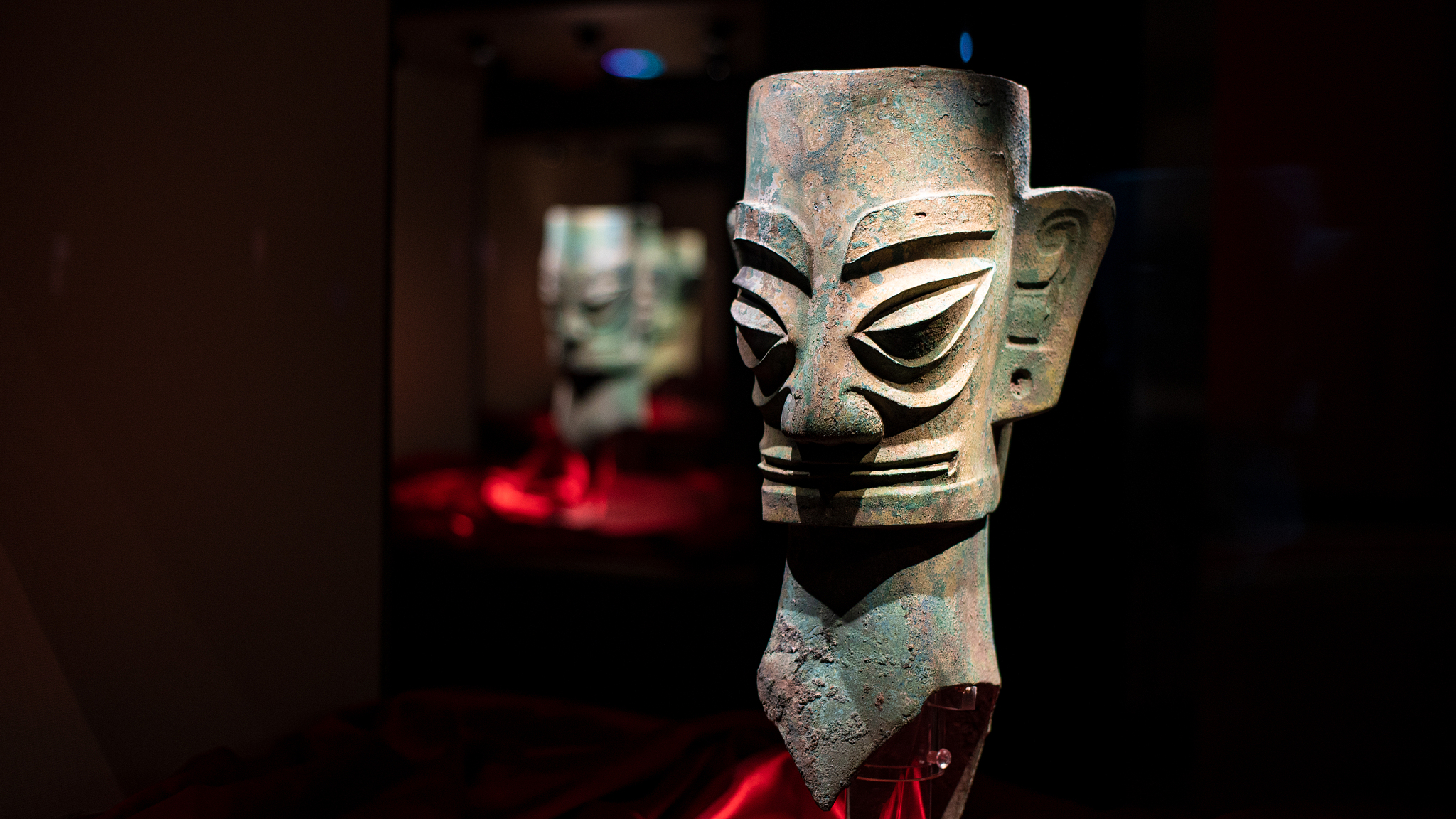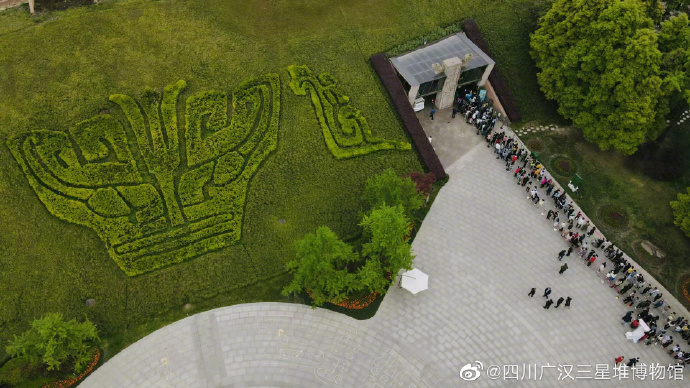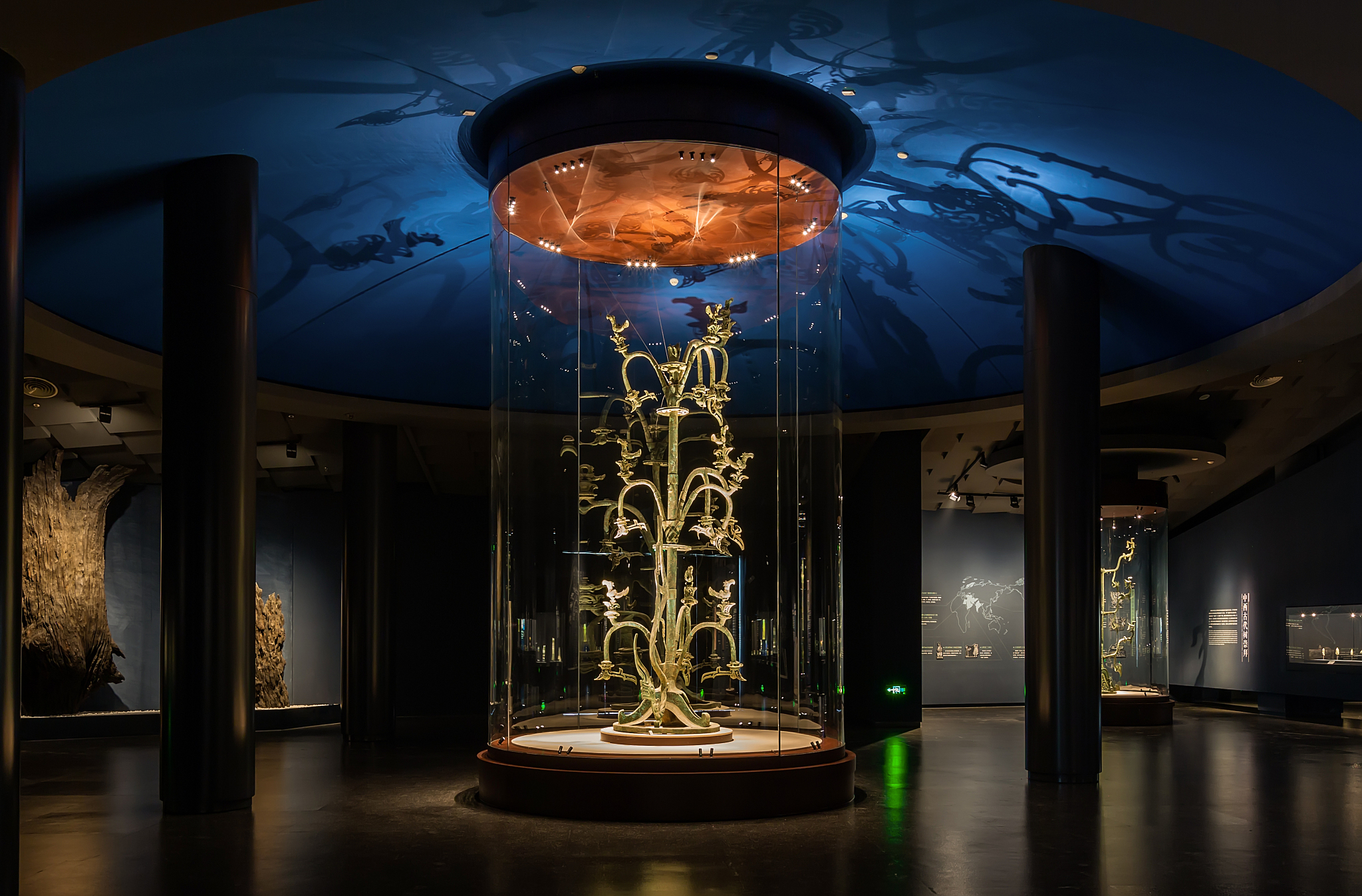
A bronze mask displayed at the Sanxingdui Museum in Guanghan, southwest China's Sichuan Province, December 22, 2019. /CFP
A bronze mask displayed at the Sanxingdui Museum in Guanghan, southwest China's Sichuan Province, December 22, 2019. /CFP
The Sanxingdui Museum in southwest China's Sichuan Province enjoyed huge popularity during the three-day Qingming Festival holidays by receiving nearly 20,000 visitors on the peak day, after the new archaeological discoveries brought international attention.
According to media reports, the museum saw over 15,000 visitors on Saturday, the first day of the Qingming Festival, breaking its record for daily visitors. And on the next day, more visitors swarmed into the museum to exceed 19,800.

Visitors line up before entering the Sanxingdui Museum in Guanghan, southwest China's Sichuan Province, April 4, 2021. /Sanxingdui Museum
Visitors line up before entering the Sanxingdui Museum in Guanghan, southwest China's Sichuan Province, April 4, 2021. /Sanxingdui Museum
To cope with the large flow of people, on Sunday afternoon, the official Weibo account of the Sanxingdui Museum released the message to remind visitors of avoiding rush hours or rescheduling their visiting time.
The Sanxingdui Museum, located in the northeast corner of the Sanxingdui Ruins site in Guanghan City, showcases various kinds of precious cultural relics unearthed at the site, such as the 2.62-meter-tall standing statue, 1.38-meter-wide bronze mask, 3.95-meter-high bronze tree.

The 3.95-meter-high bronze tree is displayed at the Sanxingdui Museum in Guanghan, southwest China's Sichuan Province, January 22, 2020. /CFP
The 3.95-meter-high bronze tree is displayed at the Sanxingdui Museum in Guanghan, southwest China's Sichuan Province, January 22, 2020. /CFP
Earlier on March 20, Chinese archaeologists announced some new major discoveries made during the 37th excavation since its last excavation 35 years ago. The ruins were first discovered in the late 1920s and first excavated in 1934.
More than 500 important cultural relics have been unearthed in the six newly-found pits, including fragments of gold masks, bird-shaped gold ornaments, gold foils, painted bronze head portraits, giant bronze masks, bronze sacred tree, ivories, fragments of exquisite tooth carvings, jade cong and jade tools.

A gold mask unearthed at the No.5 pit of the Sanxingdui Ruins site in Guanghan, southwest China's Sichuan Province. /Sanxingdui Museum
A gold mask unearthed at the No.5 pit of the Sanxingdui Ruins site in Guanghan, southwest China's Sichuan Province. /Sanxingdui Museum
Since the new discoveries were known to the public, the number of people visiting the Sanxingdui Museum increased sharply.
The museum said although they are open as usual, the newly-found pits have not opened to the public yet and the newly-excavated cultural relics are still under restoration and cannot meet the public currently. But a hall for cultural relic conservation and restoration will be in trial-operation in April and officially open on May 18. Visitors to it can see how the relics are restored, according to Zhu Yarong, vice director of the Sanxingdui Museum.
Dating back about 3,000 years, the Sanxingdui Ruins have shed light on the ancient Shu civilization and cultural origins of the Chinese nation, and have been regarded one of the most important archaeological discoveries in the 20th century.

